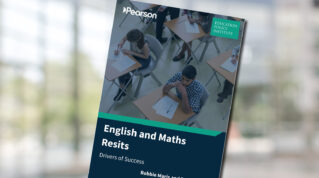Sex and relationships education should be made compulsory in colleges to help young people avoid “potentially harmful and dangerous situations”, MPs have said.
Currently relationships, sex and health education (RSHE) is mandatory in secondary schools up to the age of 16. But the gap between 16 and 18 without RSHE means young people are left “under-supported” and “less equipped” with important knowledge about RSHE, according to a report by the Women and Equalities Select Committee.
The report follows an inquiry by the select committee into sexual harassment in schools and colleges, following the emergence of the MeToo movement and of Everyone’s Invited, an online platform set up to document stories of harassment which went viral.
Ofsted also published a review in 2021 covering sexual abuse in schools and colleges – which the MPs welcomed but said needed to go further. For instance, the select committee warned female staff are “not immune” from abuse and called on Ofsted to investigate their abuse by other staff, pupils and parents as part of its inspections.
One of the report’s key recommendations is that RSHE be made compulsory up to the age of 18.
“[A lack of compulsory RSHE after 16] leaves young people making their first steps in the adult world under-supported and less equipped to navigate potentially harmful and dangerous situations and keep themselves safe and healthy in relationships,” the report said.
“RSHE should be extended to young people in post-16 educational settings.”
The committee suggested it would like all young people between the ages of 16 and 18 to receive RSHE but that it “will be up to the government how that can be implemented”.
But the committee did not hear evidence on how this could apply to independent training providers, and so has not made any recommendations for ITPs.
Though there is agreement that RSHE is needed in colleges, some sector leaders have urged the government to support colleges with funding and resources so that they can offer that provision.
Geoff Barton, general secretary at the Association of School and College Leaders (ASCL) said sexual harassment and violence is “treated as an extremely serious matter in schools and colleges”.
But he warned colleges had received “very little” in the way of support or training for teachers to teach RSHE.
“Schools and colleges are striving to uphold good values but they cannot fight this battle alone. They need to be supported in terms of funding, resources and an online regulatory framework that protects young people.”
He also warned the Online Safety Bill, which was partly developed to tackle misogyny and abuse online, is “plodding its way through parliament”.
The bill entered parliament in March 2022 but is still in report stage in the House of Lords.
Bill Watkin, chief executive of the Sixth Form Colleges Association said sixth form colleges “almost invariably” already offer RSHE as “they understand how important it is”.
But he said there is “unlikely to be any significant advantage in making [RSHE] compulsory”.
“Evidence shows that sixth form students are only funded for 15 hours a week of tuition, so were this to become an additional requirement on the timetable, the delivery costs would need to be fully funded by government”.
The Department for Education was approached for comment.
Ofsted declined to comment.

















Your thoughts